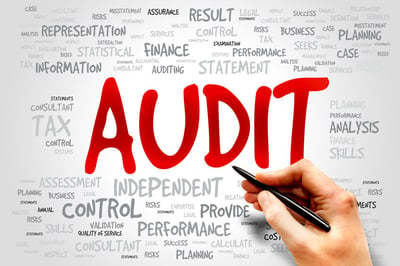- Home
- About
- Services
- Tools & Resources
- Client Info
- Request Info
- Carrier Tools
- Contact Us
- Get a Quote
- Français
The CBSA audit. It’s a thing importers try to avoid...but what is it really like to be audited?

The first communication you’ll receive is a phone call to determine who at your business will be their principal contact. They will advise who they are and why they are calling. They’ll refer to this process as either an audit or a trade compliance verification.
Next, CBSA will send out an email to the designated person at your business with forms for you to complete. When these forms arrive, you should immediately share the CBSA’s communication with your Customs Broker and provide copies of the forms received.
You have a choice to move forward on your own or engage your Customs broker.
Your broker is able to get the forms completed for you and send them to the CBSA. The CBSA will respond to both you and your broker with a formal request letter and the resulting submission will be sent to them in the time frame specified.
Trade compliance verifications can take months or years to be completed, depending on the CBSA and what they request after the initial submission is complete.
Goods should not be delayed at the border, unless an assessment made as a result of the verification is not paid by the deadline specified.
Verifications are most often tailored to investigate specific types of goods, accounting practices, or the possibility of incorrect documents/declarations. The target list is not generally aimed at any specific Importer.
We publish regular verification trend updates. Stay tuned to our blog for updates.
Some best practices to avoid audits
Verifications are conducted by the CBSA to determine your compliance. As a Federal agency, the CBSA has enforcement abilities, much the same as a police force. A Customs broker is familiar with the process and can potentially mitigate negative outcomes. Providing too much or too little information or simply not understanding what information is actually required can cause undesired effects.
Our dedicated Audit Response Unit keeps current on verification trends and have decades of experience managing customs verifications. We understand the potential risks and costs to a business facing an audit—we work with you to both avoid being audited and to respond effectively if an audit does happen. Contact one of our experienced Customs professionals today.
Information provided by: Audit Response Unit (ARU) - Cole International